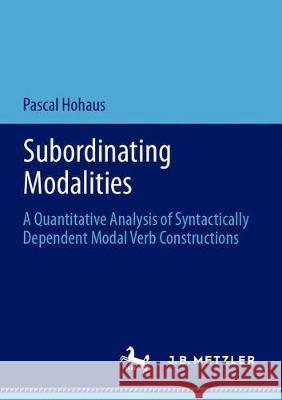Subordinating Modalities: A Quantitative Analysis of Syntactically Dependent Modal Verb Constructions » książka
topmenu
Subordinating Modalities: A Quantitative Analysis of Syntactically Dependent Modal Verb Constructions
ISBN-13: 9783476056429 / Angielski / Miękka / 2020 / 286 str.
Subordinating Modalities: A Quantitative Analysis of Syntactically Dependent Modal Verb Constructions
ISBN-13: 9783476056429 / Angielski / Miękka / 2020 / 286 str.
cena 342,14
(netto: 325,85 VAT: 5%)
Najniższa cena z 30 dni: 327,68
(netto: 325,85 VAT: 5%)
Najniższa cena z 30 dni: 327,68
Termin realizacji zamówienia:
ok. 16-18 dni roboczych.
ok. 16-18 dni roboczych.
Darmowa dostawa!
Kategorie:
Kategorie BISAC:
Wydawca:
J.B. Metzler
Język:
Angielski
ISBN-13:
9783476056429
Rok wydania:
2020
Wydanie:
2020
Ilość stron:
286
Waga:
0.36 kg
Wymiary:
21.01 x 14.81 x 1.63
Oprawa:
Miękka
Wolumenów:
01
Dodatkowe informacje:
Wydanie ilustrowane











